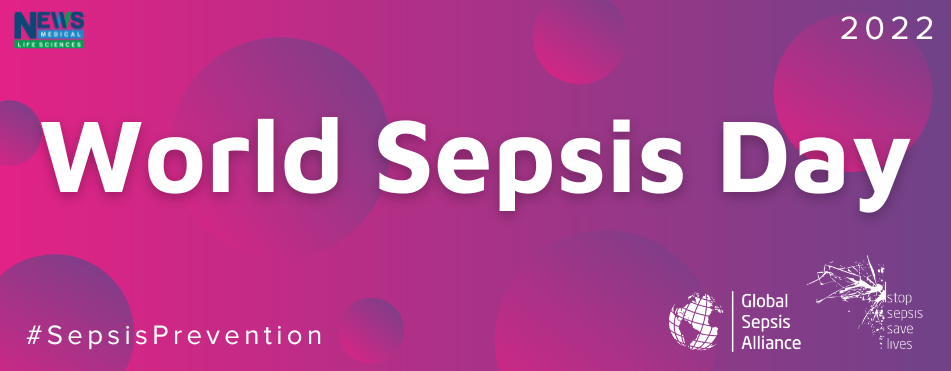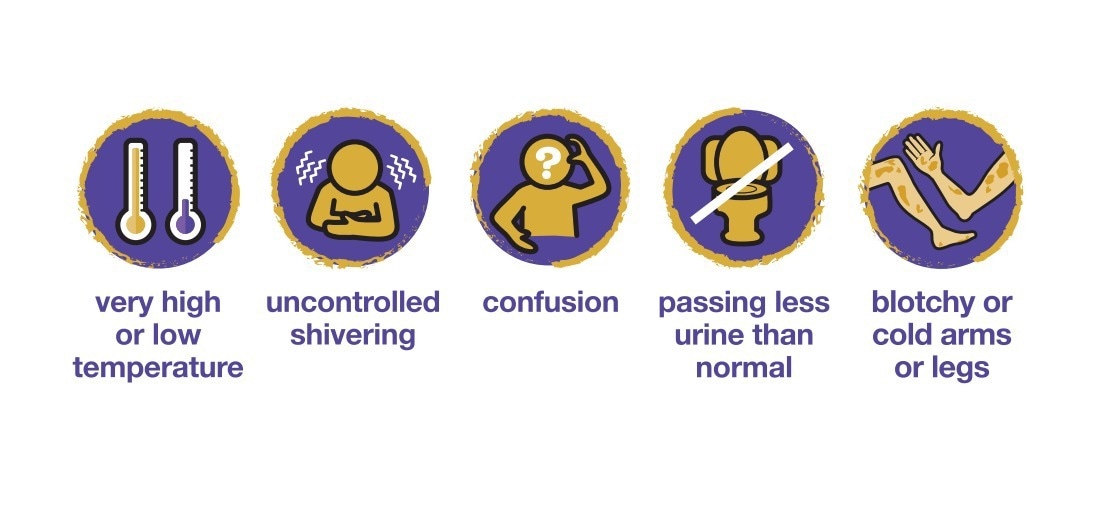I’m Colin Graham, Chief Operating Officer at Sepsis Research FEAT. Our charity was founded in 2013 by Craig Stobo after he lost his wife, Dr Fiona Elizabeth Agnew, and their unborn daughter Isla to sepsis in August 2012.

Sepsis Research FEAT’s mission is to save lives and improve outcomes in sepsis patients by funding research and raising awareness. How are you doing this, and what is the ultimate goal?
We are in our 4th year of a research partnership with the GenOMICC Study (Genetics of Mortality in Critical Care) at the University of Edinburgh’s Roslin Institute. Led by Professor Kenneth Baillie, the world-leading GenOMICC project aims to find the genetic factors that determine outcomes in critical illness. The researchers are expanding their understanding of sepsis and helping to develop improved treatments by examining DNA samples from patients in intensive care units (ICUs) throughout the UK. There are millions of DNA sequence differences between any two humans, any of which could be important in determining the outcome in sepsis.
Finding the genes that matter requires the recruitment of a large numbers of patients. Typically, the researchers require thousands of patient samples to find genetic associations with disease. They need to recruit over a large area, and for a long time, to acquire the necessary DNA. Early funding from Sepsis Research FEAT helped create the infrastructure to collect and store the samples, and this has enabled the study to grow at pace.
GenOMICC has been able to collect and store over 19,000 samples of DNA from critically ill patients in ICUs across the UK and elsewhere, and is the largest study of its kind anywhere in the world. The aim is to get 100,000 critical illness genomes, with the ultimate goal of making genetic discoveries that will give an unprecedented insight into the biology of critical illnesses, including sepsis, helping to identify new treatments and deliver better outcomes for sepsis patients.
Another key part of our work is raising awareness of sepsis so that people recognize the five key symptoms and know to seek urgent medical help if they suspect sepsis. Press and social media are hugely important in delivering our awareness messaging, and a key aim is to tell sepsis stories through the eyes of people affected by it. The power of sharing individual stories is indisputable in terms of raising awareness of sepsis and its symptoms.
We are delighted to have been able to produce a brand new series of eight podcasts, which we are launching during Sepsis Awareness Month 2022. These new podcasts will tell the stories of those who have been directly affected by sepsis in a fresh and engaging way. By maximizing the audience that we reach, we will educate more people, more powerfully, about sepsis, its symptoms, and its impact.
Finally this Sepsis Awareness Month, we are launching a new national awareness campaign in partnership with the Scottish Government. Sepsis Research FEAT has previously worked with the Scottish Government on awareness campaigns in 2018 and 2019, reaching more than 1.3 million people across Scotland. The latest partnership will build on this success with a nationwide multimedia campaign that will include commercial TV, radio, print, and social media.

Image Credit: Kateryna Kon/Shutterstock
Sepsis is known as a silent killer, affecting almost 50 million people worldwide annually. Can you explain why sepsis outcomes can be so severe if not spotted early?
Sepsis occurs when the body’s response to an infection spirals rapidly out of control. Instead of fighting just the infection, the immune system starts to attack the whole body, potentially leading to multiple organ failure and death.
When dealing with suspected sepsis cases, acting fast and starting early medical treatment can save lives and improve outcomes. However, recognizing and diagnosing sepsis is not always easy. Sepsis begins with an infection - for example, chest, skin, urine, meningitis - but, in the early stages, symptoms can be vague and hard even for doctors and nurses to recognize.
Five key symptoms of sepsis for patients and the public to be aware of are:
- Very high or low temperature
- Uncontrolled shivering and/or sweating
- Confusion
- Not passing as much urine as normal
- Cold or flushed or blotchy arms and legs
If someone has any of these symptoms becoming noticeably worse, this could indicate sepsis, particularly if the person has underlying vulnerabilities due to age, illness, or altered immune function.
As sepsis worsens, blood flow to vital organs, such as the brain, heart, and kidneys, becomes impaired.
This can raise the risk of organ failure and tissue death.
Septic shock is the final, most advanced form of sepsis and the most difficult to treat. In septic shock, a dramatic drop in blood pressure can severely affect organs and lead to long-lasting complications or death.
The key message with sepsis is to seek URGENT medical attention- prompt diagnosis and treatment will help to save lives.

Image Credit: Sepsis Research FEAT
Sepsis affects not only adults but also children. How common is childhood sepsis, and how can adults spot these symptoms in children and babies?
There are around 25,000 cases of childhood sepsis every year in the UK. Babies and children may have vague and non-specific symptoms of sepsis, which can make it hard to diagnose, and the signs and symptoms can be slightly different from those in adults. In children and babies, parents should be looking out for:
Rapid breathing or a shortness of breath; cold, mottled or pale skin; a very high or a low temperature; skin or lips that appear bluish; poor feeding; vomiting or diarrhea; lethargy or difficulty waking; little or no urine output; a non-fading rash.
Above all parents should trust their instincts and seek urgent medical help if they are at all concerned about their child’s health.

Image Credit: Sepsis Research FEAT
Sepsis Research FEAT funds research into sepsis through various partners. Can you tell us about some promising breakthroughs discovered through such work?
At the start of the COVID-19 pandemic, the GenOMICC project was identified as an urgent public health priority study by the UK’s National Institute of Health Research. By pivoting their research to this new and emerging illness, the team was able to identify 23 genes associated with the most severe form of COVID-19. These findings helped in the identification and re-purposing of drug treatments for COVID patients, a hugely important breakthrough for patient outcomes. The successful research on COVID-19 shows the promise of human genetics to understand critical illnesses and is likely to be highly important to the understanding and treatment of sepsis.
The Global Sepsis Alliance celebrates World Sepsis Day annually in September. Why do you believe it is so important to raise awareness of sepsis and how do world days like this one help to achieve this goal?
Sepsis is indiscriminate. It can affect anyone, regardless of age, sex, background or state of health. It seems unthinkable that in 2022 there still exists a condition that can kill a previously healthy adult or child in hours. That is why it is so important for everyone to know what sepsis is, to be able to recognize the key symptoms, and to understand that it is a medical emergency that requires urgent treatment.
Sepsis Awareness Month every September, and World Sepsis Day on the 13th September, provide an opportunity to shine a spotlight on sepsis. We join organizations and individuals around the globe to remember those that have lost their lives to sepsis and renew our pledge to be part of the global movement to help improve diagnosis and treatment for sepsis patients in the future.

Image Credit: Kateryna Kon/Shutterstock
What is next for Sepsis Research FEAT? Do you have any exciting projects coming up?
We are excited to announce increased investment supporting a new pilot study, GenOMICC Acute, in which additional blood samples will be obtained from patients shortly after ICU admission, providing researchers with insight into what happens within a patient’s body when they are at their most critically ill. It will provide a deeper understanding of the genetics of patients, and their response to critical illness and ultimately could lead to much more targeted patient treatments.
Where can readers find more information?
Please visit our website www.sepsisresearch.org.uk and follow us on social media:
- Facebook: SepsisResearchFEAT
- Twitter: @stopsepsisnow
- Instagram: @sepsisresearch
- TikTok: sepsisresearchFEAT
About the Colin Graham
Colin joined Sepsis Research FEAT in October 2018 as the charity’s first Chief Operating Officer. Colin is a charity sector veteran with 25 years’ of experience. He is responsible for advising the board of Trustees, developing awareness of the charity, overseeing its fundraising and marketing strategy, and developing strategic partnerships.
marketing strategy, and developing strategic partnerships.